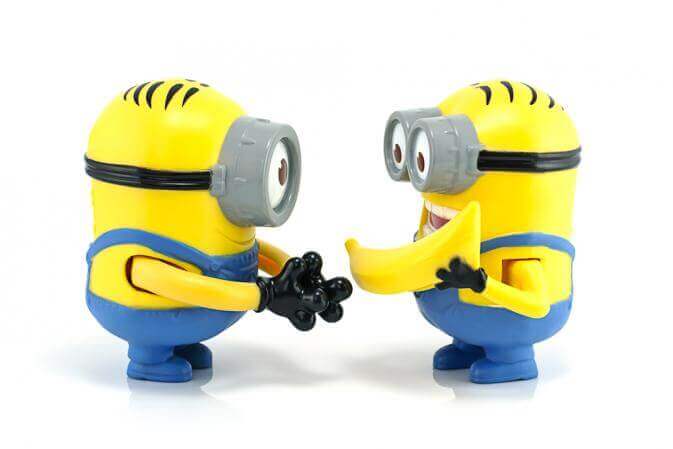The Meaning of ‘Minion’
People used to think of minions as evil underlings, but now people are more likely to associate the word with the cute characters from Despicable Me. Find out how else this word’s meaning is changing.
Neal Whitman, Writing for

For most of my life, the word minion has meant an evil underling, but recent events in pop culture are changing the meaning of minion. Now it can refer to underlings that aren’t evil, or evil things that aren’t underlings.
The first development came with the release of the movie Despicable Me in 2010. The minions of the evil genius Gru were an entire species of sponge-cake-resembling, gibberish-speaking aliens that were just so cute that they couldn’t possibly be evil. These creatures have become such a hit that for today’s children, minion probably just refers to the Despicable Me minions.
The meaning of evil things that aren’t necessarily underlings comes with a card game called SmashUp, which came out a couple of years after Despicable Me. In this game, teams of monsters compete to win points, and each member of a team is known as a minion—even the highest-ranking member of the team.
But where did the word minion come from, and how did it come to refer to a lackey who does a villain’s dirty work? According to the Oxford English Dictionary, minion was borrowed from Middle French in the early 1500s, from a word that meant a lover, or someone’s favorite. Later, it lost the meaning of favorite and just came to mean a follower or underling.
The story doesn’t end there, though: The word was borrowed again from French into English in the 1600s, this time as an adjective meaning small, delicate, and graceful. This time it kept its original spelling, and it’s pronounced somewhat differently: as Mignon!
[Note from Mignon Fogarty: In case you’re wondering, I’ll add that I was named after a flower called the mignonette. It was my great-great-grandmother’s favorite flower. She named her daughter Mignonette, and it became a family name that got shortened over generations to just Mignon.]
This piece was by Neal Whitman, who has a PhD in linguistics and blogs at literalminded.wordpress.com.
Image courtesy of Shutterstock.
